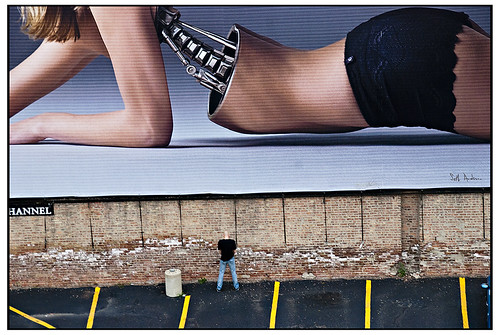A few interesting links collected November 9th through November 10th:
- What’s Alan Watching?: Mad Men, “Shut the Door. Have a Seat”: We’re putting the band back together – “Shut the Door. Have a Seat” felt very much like a caper movie: the jazzy piano music, the intrigue, the plan unfolding perfectly as Lane walked in, got fired by St. John, and walked out happily, leaving a dumbfounded Moneypenny in his wake. Specifically, though, the episode felt like my favorite part of any caper (or other kind of ensemble adventure) movie: the gathering of the team. I have been, and always will be, a sucker for those sequences in movies like “Ocean’s Eleven,” “The Dirty Dozen” and “The Magnificent Seven” where the two leaders (there are always two guys at first, aren’t there?) travel around to assemble the perfect team of experts, explaining their value and using various tricks of persuasion along the way to get them on board.
- The Watcher: Checking in with Conrad Hilton: ‘Mad Men’ actor Chelcie Ross speaks – I think [Conrad Hilton is] a zealot, and his zeal was focused on one particular area — his business. They don’t get into it on the show but Conrad Hilton’s private life was just about as rocky as Don’s. He left behind women, he worked all the time. But his zeal for what he’s doing relates to his business and his belief in God and America and what it can bring to the world. He feels that’s his mission — to bring America to the world, and he has bought into it 100 percent.
- Mad Men Postmortem – The Daily Beast – It’s so unambiguous to me that this marriage is over, but the audience seems to cling to the idea that they should be together because we want to believe in those things. The marriage was not good. It was built on a lie and the lie was exposed. In the end, Don coming clean really damaged his relationship with her, more than the lying, her seeing who he actually was. I do believe when he says his mother was a 22-year-old prostitute that Betty is looking at something that is very far from what she had planned for herself… That was the whole story of the season. When Henry Francis (Christopher Stanley) came on to her… a switch went off in her head of what was missing in her life, which was a true, romantic attachment. In the end, that combination with her gut feeling that something wasn’t right in her marriage and finding out the truth, they don’t belong together anymore, kids or not. You’ve got to take it pretty seriously when someone’s flying to Reno to get a divorce.
- Mad Men Confronts Heaven and Hull: The Season 3 Finale: James Wolcott | Vanity Fair – Although this episode began with ominous echoes of The Godfather…it pedaled into an inspirational tale–an entrepreneurial vision of A Christmas Carol, where everyone comes together under one roof not out of love or family ties or sentimental obligation but out of mutual economic self-interest and buccaneer solidarity, sink or swim, eat or be eaten. “Well, it’s official,” toasts Roger after he, Don, Bert, and Pryce form their rebel alliance. “Friday, December 13, 1963: Four guys shot their own legs off.” The shark cunning entailed in starting up this new agency may seem cold, bloodless, and mercenary—an Ayn Rand mission minus the rhetorical bombast–but the collaborative enthusiasm of this breakout operation was brisk, invigorating: it gave you a lift being in an adult universe where talent and initiative were on the move and mediocrity left behind to fend for itself.
-
The Watcher: Sterling Coup: A terrific ending to ‘Mad Men’s’ season – ” I was just transfixed by Sally’s watchful brown eyes. She just kept looking from parent to parent, waiting for someone to tell her the truth. More effectively than anyone else has ever done, she called Don on his b.s. “You say things and you don’t mean them! You can’t just do that!”
Later, we see Sally once again in front of the TV, her comforter, her friend. Carla and the TV are the most stable forces in Sally’s life. Truth be told, Carla being the biggest influence on Sally’s life would not be a bad thing at all.
Later when Bobby was clinging to Don’s body like a little monkey, unwilling to let go, holding on tight with every limb — that was heartbreaking.”
- Footnotes of Mad Men: Goodbye, All Our Pretty Horses | The Awl – Don’s revulsion at being sold off has to do both with his free-pony-roaming the-silvery-plains sense of individualism (DREAMY) and also McCann Erickson’s noxious reputation in the 1960s. ‘Giantism’ was their business ethos. Beginning in the early 1960s, McCann-Erickson, then known as Intergroup McCann-Erickson, gobbled up a mid-sized shops and retained them under one umbrella, but still forced them the compete for clients. This had an upside: two agencies could be under the McCann Erickson parent with one shop servicing American Airlines and the other shop servicing TWA. And a downside: the fear, at the time, was there would be leaks and betrayals between agencies. In 1964, Nestle left McCann-Erickson because they also serviced Carnation. Continental also withdrew their business because McCann was in bed with other airlines. “Bigness is an evil,” a Nestle executive explained, “that strains relationships that ten years ago were very warm and close.”
- Eschaton – Evil Google – “As is occasionally pointed out when journalists and news business people complain that Google is stealing their content, if they don’t want Google to index their pages they can simply… tell Google not to index their pages by inserting a bit of code into them. What they really want Google to do is pay them for the privilege of making money from a derivative of their product, the way book reviewers always pay novelists, for example.”




























